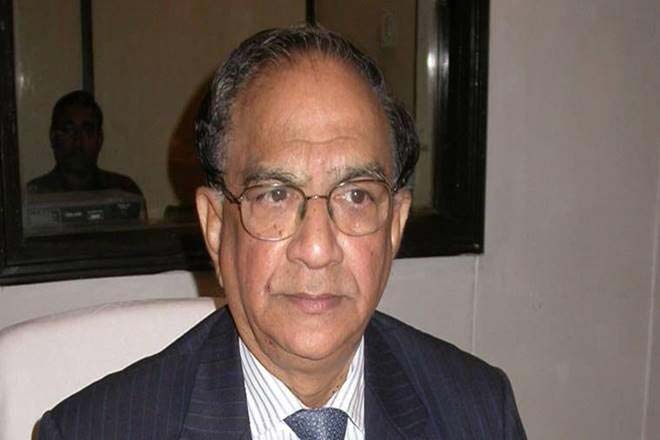- Ours is an evolving democracy, much better than many countries : Dr. Sudarasana Nachiappan
There is a dire need to bring a law to regulate political parties in the country, said TS Krishnamurthy, former Chief Election Commissioner of India. Participating in a discussion organized by ‘Prime Point’ on Sunday on electoral reforms and simultaneous elections, Krishnamurthy (TSK) emphasized on the need to do away with the first-past-the-post system that is in vogue in the country since 1952. He wanted more transparency in funding of political parties. The ways and means of preventing criminals from contesting elections also have to be examined, Krishnamurthy said.
There is no law at present to regulate founding of a political party, holding of organizational elections and resolving disputes among the party members. There are no regulations on the manifestos. A separate legislation is required. Just as the companies have companies law, the political parties also should have a law, opined the former chief election commissioner under whose watch the 2004 elections were held.
Present system is not representative enough
A candidate in a multi-cornered contest getting 28 percent of votes is declared elected. He does not represent 78 percent of the electorate. Still he is treated as a people’s representative. There have been many suggestions in this regard. One such suggestion was to go for the German model of Proportional Representation System whereby the political parties will contest the elections and nominate members in proportion to the votes they get. There could be reelection until a candidate gets 50 percent plus one vote of 33 percent plus one vote to be declared elected. There is a feeling among those who want electoral reforms that the present method is not representative enough and it has to go.
Also Read : We, the parties…
Electoral bonds should go
The present system of funding the political parties through electoral bonds is not transparent and the ruling party has a clear advantage. The reformists feel that the US system is the best where even a cent spent in primaries also is accounted for. There could be national election fund. Corporations can donate openly. Now corporations are donating without their name being mentioned. Even cash is being paid as donations.
Foisting false charges
In order to disallow persons with criminal record from contesting elections, some mechanism has to be in place. It is possible that party in power can manipulate to have FiR filed and false charges foisted against their political rivals to prevent them from contesting in the elections. A lot of deliberations are needed to come up with regulative mechanism so that it is not used against political rivals by the ruling parties.
Nachiappan is optimistic
These areas were touched by another guest in the show, Sudarsana Nachiappan, a former member of Lok Sabha and Rajya Sabha and chairman of Standing Committee on political reforms. Both Krishnamurthy and Sudarsana spoke with authority on the subject of political reforms and simultaneous elections. Nachiappan said former Chief Election Commissioner TN Seshan appeared before his committee even when his health was not good. He was very hopeful that younger generation of leaders would help Indian democracy evolve into a matured one. Even in the US the outgoing president Donald Trump questioned the people’s verdict but such a thing never happened in India.
Also Read : ‘Sircilla Rajeshwari’, an inspiring story
Simultaneous elections possible but difficult
Both Nachiappan and Krishnamurthy felt simultaneous elections is a good idea but difficult to implement. It cannot happen overnight and an attempt could be made in 2024 elections. By that time six States would go for Assembly polls along with Lok Sabha, elections for Assemblies in five more States would be due after a few months. Then three more States would be ready. In all, 15 States could go for simultaneous election along with Lok Sabha in the first phase. The second phase could be planned after two and a half years. State like Jammu & Kashmir, Bihar and others will have to agree to curtail the term of their Assemblies in order to fit into one of the two phases. Since the BJP is in power in most of the states, it can extend the tenure by legislation or shorten the tenure so as to fit into the two phases. Naichappan reminded that the elections held in 1952 and 1957 were simultaneous where people voted for both Lok Sabha and Assemblies. With the dismissal of Kerala government when Nehru was prime minister and Indira Gandhi was president of the Congress, the timetable in Kerala had to be changed. Many other States have followed latter. So much so, there is election in some part of the country or other disrupting the development activities.
Also Read : How can Courts decide mala fides issues between two wings of State?
EVMs are dependable, beyond doubt
The dependability, credibility and capability of the Electronic Voting Machines are beyond doubt, Krishnamurthy emphasized. He said it is made by Indian engineers and they are less expensive more transparent. There are no invalid votes in the he elections in which EVMs are used. The system of NOTA was proposed by Krishnamurthy and approved by the Supreme Court. Nachiappan said everything is evolving, we are correcting mistakes, plugging loopholes and strengthening democracy in the country. He sounded very optimistic about the future of Indian democracy. Both the experts said every political party in its manifesto must mention about electoral reforms that the party supports. Fifteen years have passed since the first set of electoral reforms were made and no action has been taken on them so far. It is high time that the reforms were taken up to make people have their trust in democracy and electoral practices.
Srinivasan of Prime Point has welcomed the guests while Priyadarshini Rahul has conducted the debate.




